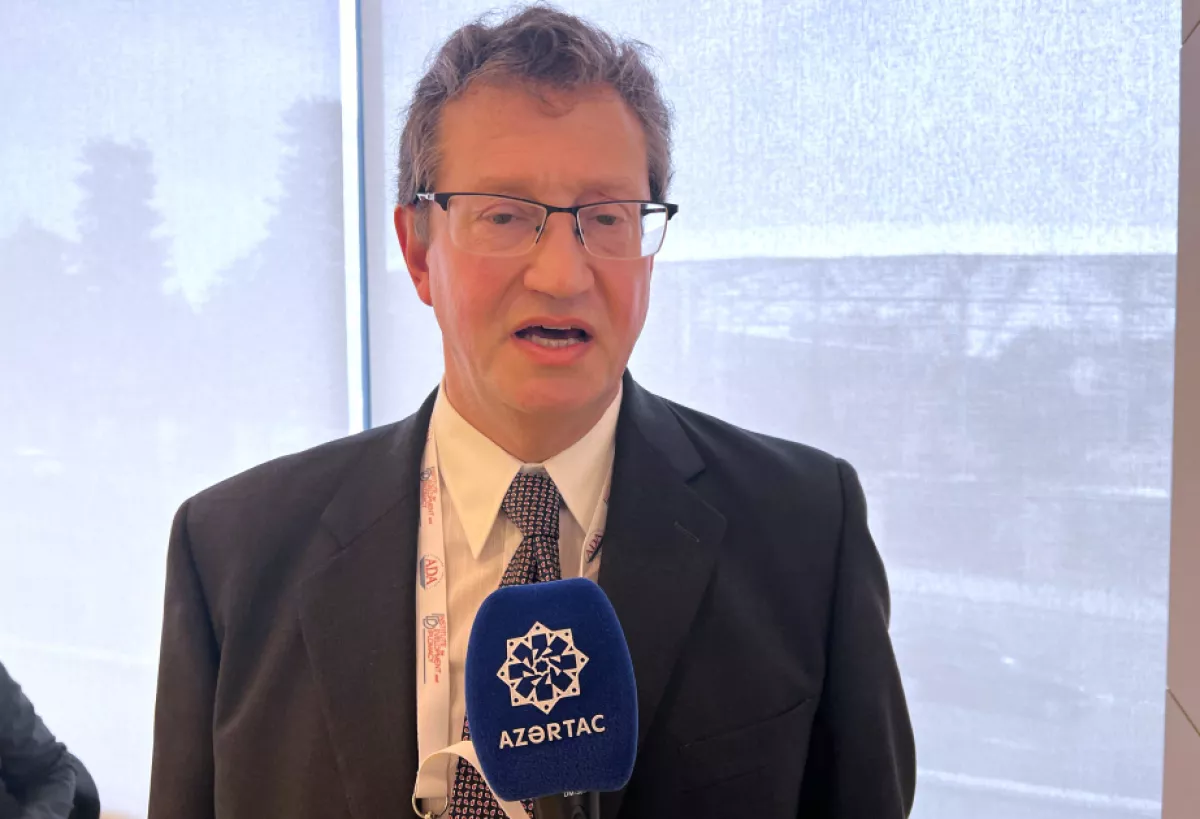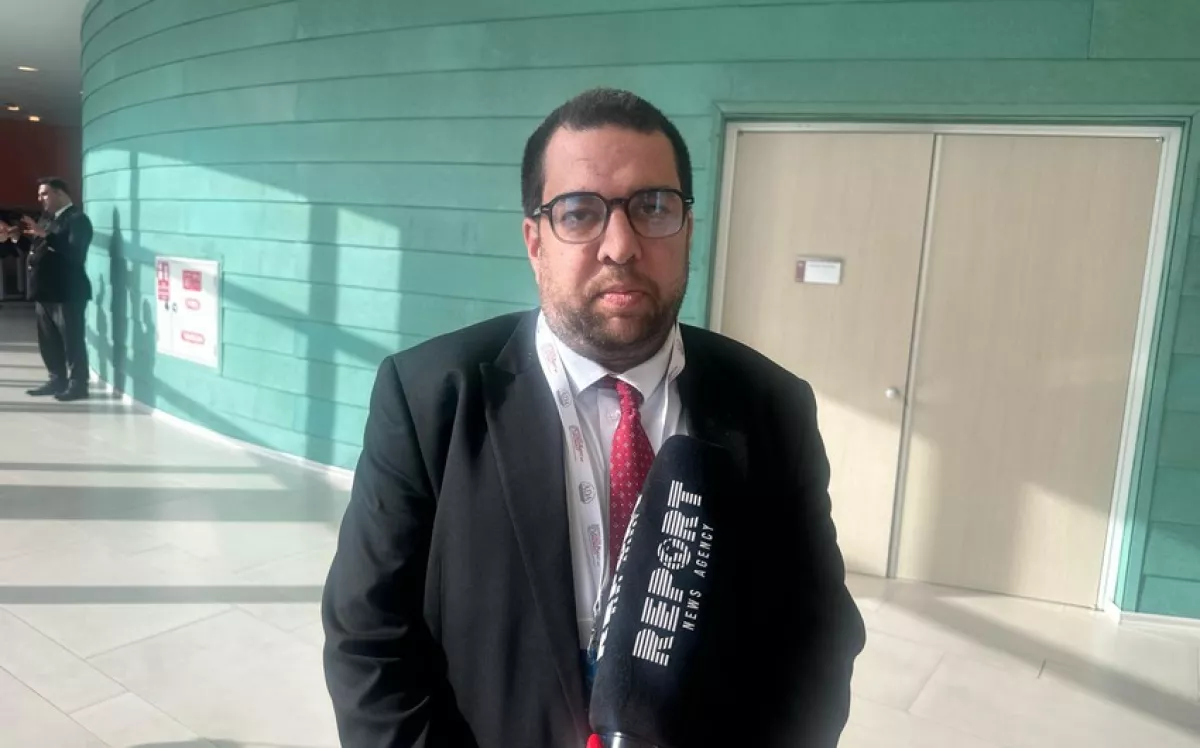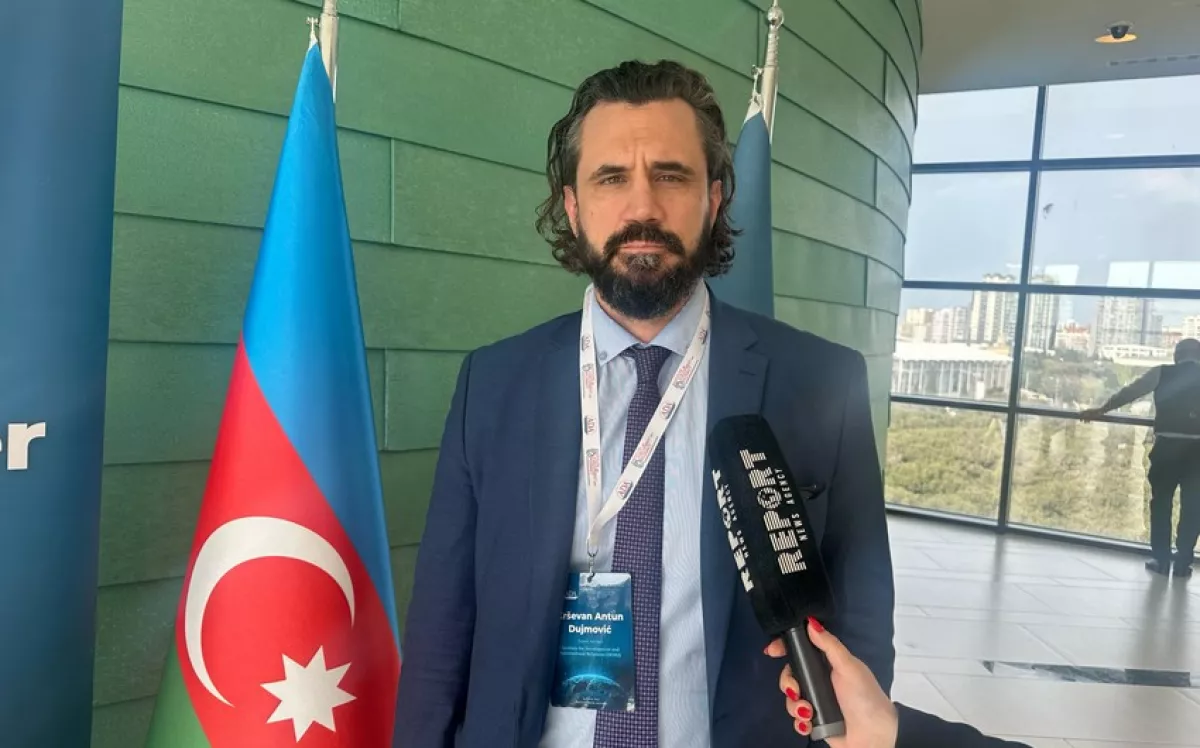International experts converge in Azerbaijan to discuss future of global relations
The recent "Facing the New World Order" international forum in Baku, Azerbaijan sparked a series of open and engaging discussions, drawing prominent figures from across the globe to address critical issues shaping international relations and regional stability.
James Sharp, a member of the Advisory Council of the Caspian Policy Centre and former UK Ambassador to Azerbaijan, highlighted the forum's significance in fostering honest dialogue, Caliber.Az reports via local media.
He noted that the discussions touched on vital issues facing Azerbaijan, including its economy, energy sector, and complex relations with Armenia. Sharp emphasised the relevance of the forum's theme, particularly in today's global context.
He said that, given the current climate, every nation must reassess its foreign policy, security, and defense strategies. His remarks underscored the forum's timely focus on the evolving world order and its importance for all nations involved.

Similarly, Rick Fawn, a professor at the Centre for International Relations Analysis at the University of St Andrews, offered valuable insights into the ongoing reconstruction efforts in Karabakh. Fawn, who has visited Azerbaijan multiple times, spoke to the significance of the forum's discussions, which centered on the region's rebuilding plans and future opportunities.
He expressed hope that Karabakh would fully realize its potential, noting that Azerbaijan had set ambitious and serious goals for the region's recovery.

In addition to these discussions, Amine El Kabbaj, Director of Communications, Analysis, and Partnerships at the Amadeus Institute, shared his thoughts on the forum’s impact.
Kabbaj expressed gratitude to the organizers, highlighting the scale and depth of the event. The forum’s ability to bring together experts from around the world was pivotal in generating dynamic debates on the current state of international relations. Representing Morocco, a country with long-standing ties to Azerbaijan, Kabbaj emphasized how the forum served as an opportunity to further strengthen bilateral cooperation between the two nations.
He also underscored the importance of the topics discussed, noting that many of the issues raised challenged preconceived notions and stereotypes, making the discussions particularly valuable.

Senior Lawyer Antun Dujmović from the Institute for Development and International Relations (Croatia) also weighed in on Azerbaijan’s role in ensuring stability across the South Caucasus. Dujmović stressed that Azerbaijan had reached a historic moment, with the reintegration of Karabakh contributing to regional stability.
He remarked that after three decades of uncertainty, Azerbaijan had now fully regained control over its territory, providing the foundation for lasting peace in the region. Furthermore, Dujmović shared his personal experience, noting that his conversation with Azerbaijani President Ilham Aliyev was an incredibly insightful one, offering a deeper understanding of the region's dynamics.
Dujmović also had the opportunity to visit Karabakh and Khankendi, where he witnessed firsthand the reintegration efforts and the ongoing recovery of the region. He described seeing people return to their homes and the rebuilding process as an "amazing experience," highlighting the transformative changes taking place.
The forum in Baku proved to be an important platform for addressing critical issues and offering valuable perspectives from both regional and global experts. It highlighted Azerbaijan's central role in shaping the future of the South Caucasus and beyond, reaffirming its commitment to building a stable and prosperous region.
By Naila Huseynova








